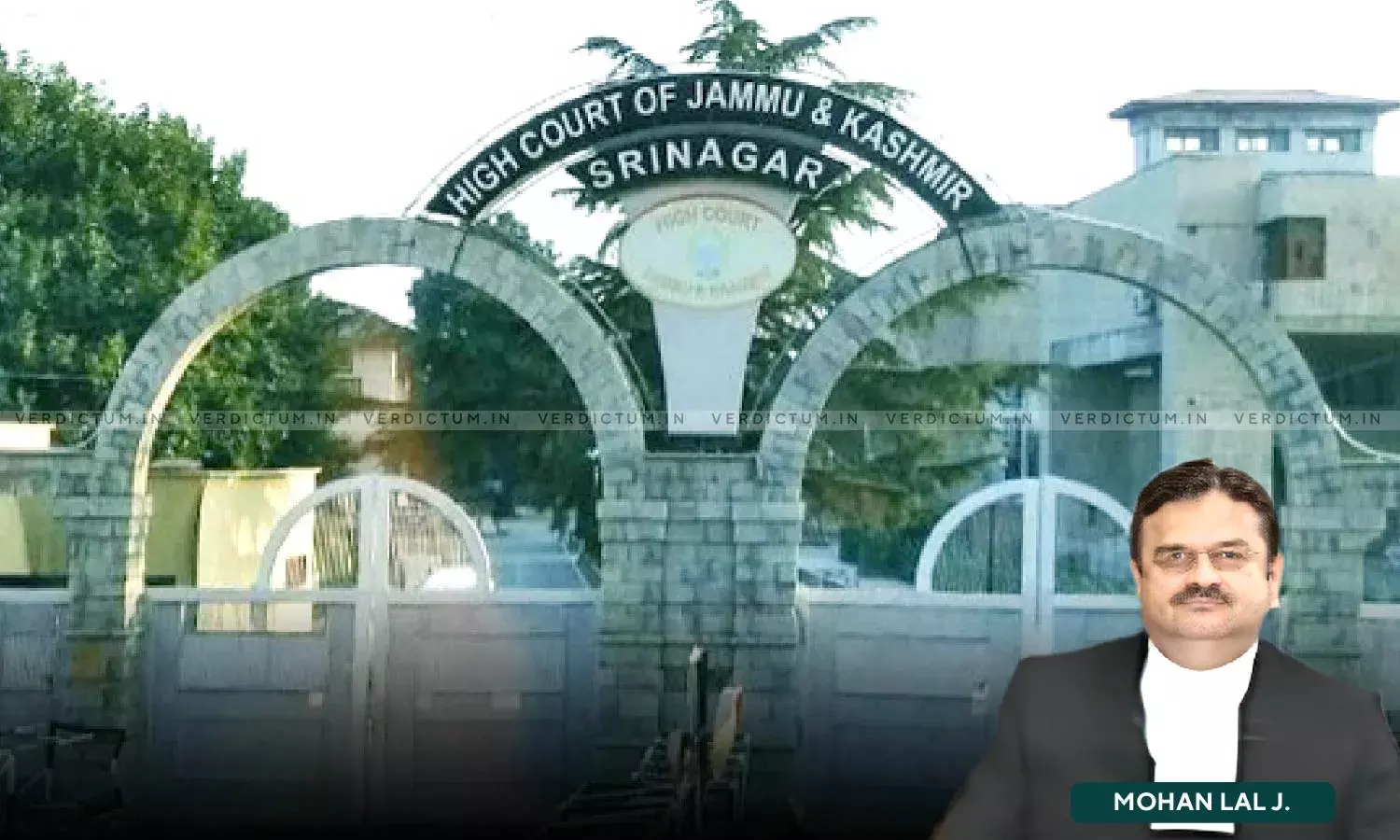Victim Won’t Have Concocted Rape Story To Falsely Implicate Accused Putting Her Honour At Stake: J&K&L HC Denies Bail To Accused
The Jammu and Kashmir and Ladakh High Court has denied bail to a rape accused saying that the prosecutrix would not have concocted the story of rape against the accused to falsely implicate him by putting her honour at a stake in the society.
A Single Bench of Justice Mohan Lal held, “… rape is the most hated crime in the society which leaves a scar upon the most cherished personality of a victim, and, therefore, no self-respecting woman would normally concoct a story of rape. … It is unambiguously reiterated here, that since rape leaves a permanent scar on the most cherished possession of woman and serious psychological impact on the victim and her family, the prosecutrix as in the case in hand, would not therefore, have concocted story of rape against petitioner/accused to falsely implicate him by putting her honour, character, reputation and her future marriage prospects on stake in the society. Ordinarily, the offence of rape is grave by its nature.”
The Bench noted that the crime alleged against the accused has a deleterious effect on civilized society and the gravity of a crime is to be necessarily assessed from the nature of the crime as a crime may be grave, but its nature may not be so grave and similarly, a crime may not be so grave but its nature may be very grave.
Advocate Pawan K Kundal appeared on behalf of the petitioner/accused while Government Advocate Suraj Singh appeared on behalf of the respondents.
In this case, the accused sought bail in terms of Section 439 of the Cr.PC. in connection to the offences punishable under Sections 376 IPC r/w Section 4 of the POCSO Act. The petitioner averred that he was falsely implicated in the case by the prosecutrix who was working as a teacher and that she manipulated a story to drag him into a heinous offence.
The accused was working as a labourer, and a few years back from the date of the alleged occurrence of the offence, he decamped stones with the tractor trolley near his house where the passage passed through towards the house of the prosecutrix which made her irritated. Hence, as per the accused, she planned to put him behind the bar and succeeded ultimately with the help of police.
The High Court in view of the facts and circumstances of the case observed, “If the petitioner/accused is enlarged on bail, there is every likelihood of the offence being repeated by him, as grant of bail would encourage the petitioner/accused in repeating the offence.”
The Court enumerated the factors to be taken into consideration while granting or refusing bail in a non-bailable case and said that the accused does not enjoy any special status in society so as to succeed in his case for the grant of bail.
“If the petitioner/accused is enlarged on bail, there is every likelihood of the offence being repeated by him, as grant of bail would encourage the petitioner/accused in repeating the offence. … a balance has to be struck between the „right to individual liberty‟ and „interest of the society‟ and no right can be absolute and reasonable restriction can be placed on it. The grant of bail depends upon facts and circumstances of each case, and it cannot be said, that there is absolute rule that because a long period of imprisonment has expired, bail must necessarily be granted”, said the Court.
The Court asserted that rape has been considered a scar on the dignity, chastity, honour, and reputation of a woman, a crime against the entire society, and is violative of the most cherished fundamental right of the victim, namely the " Right to Life" contained in Article 21 of the Indian Constitution.
“Courts cannot loose sight of the fact that crime of violence upon women and minor children are on increase and therefore the perpetrators of the crime must be dealt with iron hands. A dastardly, diabolic and fiendish manner in which the crime has been committed by the petitioner/accused upon the prosecutrix, sends the shivers down to the spines of everybody who is concerned with the administration of justice and maintenance of rule of law”, held the Court.
The Court further noted that leniency in matters involving sexual offences is not only undesirable but also against the public interest and such types of offences are to be dealt with severity and with iron hands.
“Showing leniency in such matters would be really a case of misplaced sympathy. The act of petitioner/accused is not only shocking, but outrageous in contours. The granting of bail to the petitioner/accused would lead to the danger of the course of justice being thwarted. There is no plea for grant of bail on health grounds, therefore, I hold that this is a fittest case where, "Jail" and not "Bail", is the appropriate remedy”, concluded the Court.
Accordingly, the Court dismissed the bail plea and directed the Trial Court to conclude the trial as expeditiously as possible.
Cause Title- Sunil Kumar v. UT of J&K through Secretary to Government & Ors.




